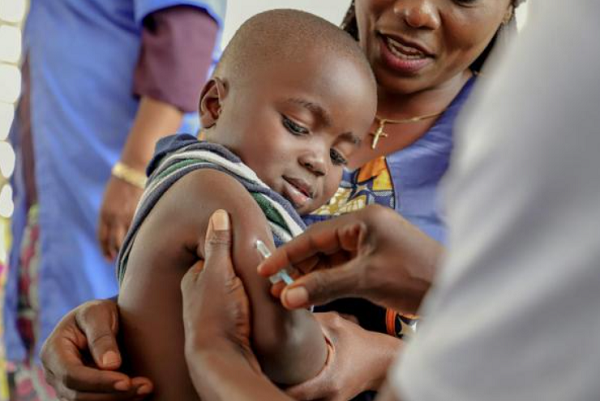
Africa risks major measles outbreaks as countries delay vaccination drives
Fifteen African countries delayed measles immunisation drives last year as they dealt with the COVID-19 pandemic.
They are Central African Republic, DR Congo, Nigeria, Botswana, Ethiopia, Equatorial Guinea, Chad, Kenya, Guinea, Angola, Gabon, Comoros, Burundi, Eswatini, South Africa.
By April 2021, seven of these countries had completed the campaigns, eight remained outstanding, posing a risk of major measles outbreaks on the continent.
The eight are Kenya, Guinea, Angola, Gabon, Comoros, Burundi, Eswatini, South Africa
According to the World Health Organisation (WHO), new early data shows that an estimated 16.6 million children in Africa missed planned supplemental measles vaccine doses between January 2020 and April 2021 and eight African countries reported major measles outbreaks that affected tens of thousands during the period.
The eight African countries that reported major measles outbreaks that affected tens of thousands between January 2020 to April 2021 are Angola, Burundi, the Central African Republic, Chad, the Democratic Republic of Congo, Ethiopia, Guinea and Nigeria
The outbreaks were largely due to low routine immunisation coverage or delayed vaccination drives. In addition, the quality of measles surveillance in Africa fell to the lowest level in seven years in 2020, with just 11 countries meeting their target.
Recent outbreaks
At a virtual press briefing, the WHO Regional Director for Africa, Dr Matshidiso Moeti said “recent outbreaks of measles, but also yellow fever, cholera and meningitis all point to worrying gaps in immunisation coverage and surveillance in Africa. As we fight COVID-19, we cannot leave anyone dangerously exposed to preventable diseases. I urge all countries to double down on essential health services, including life-saving vaccination campaigns”.
Measles is highly contagious, requiring at least 95 per cent immunisation coverage in the population to prevent outbreaks, but according to Dr. Moeti, coverage with the first dose of the measles-containing vaccine has stagnated at around 69 per cent in the WHO African Region since 2013 with only seven countries in the region achieving 95 per cent measles-containing vaccine coverage in 2019.
Dr Moeti said the low measles coverage reflected a wider stagnation in routine immunisation in Africa that, in some countries, has been exacerbated by the pandemic and related restrictions.
According to the WHO, most diseases, including tetanus, diphtheria and yellow fever, requires 90 per cent coverage in the population, yet it estimates that rates in Africa remained stuck at around 70 to 75 per cent over the last decade.
Statistics
Statistics from the WHO indicates that around nine million children in the African region miss life-saving vaccines each year and one in five children remained unprotected from vaccine-preventable diseases, which it said claimed the lives of over 500,000 children under five years in Africa every year.
However, despite all the challenges, Africa was declared wild polio-free in 2020 by the WHO.
According to the health expert organisation, vaccines were having a huge impact on diseases like cervical cancer, hepatitis and Ebola and that the region had made significant gains against meningitis A in recent years and new and underutilised vaccines have been introduced, including the pneumococcal conjugate vaccine in 40 African countries hining that over 116 million children were vaccinated with the third dose of the pneumococcal conjugate vaccine between 2015 and 2019.
Dr Moeti at the media briefing said, alongside the rollout of COVID-19 vaccines, WHO was working with African countries to ensure that routine immunisation service delivery was scaled up to close the gaps created at the start of the pandemic.
This she said included providing policy guidance, helping strengthen health systems, training health care professionals, reinforcing disease surveillance and the use of data for action, as well as assisting with periodic mass vaccination campaigns for a range of vaccine-preventable diseases.
“Integrated action is needed to increase and expand access to immunisation as part of primary health care. This must be backed by a well-trained workforce, strong surveillance, health information systems, national leadership, management and coordination. We must also engage more with community leaders and influencers to ensure that everyone understands the life-saving, transformative promise of vaccines,” she said.
Writer’s email:
